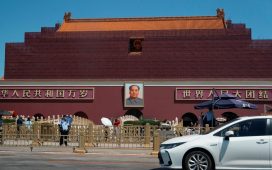Successfully navigating adversities and opportunities in the power sector in 2024 and beyond is primarily hinged on the quality of the people tasked to manage it and their capacity to learn and innovate, said Aboitiz Power Corporation (AboitizPower) President and CEO Emmanuel Rubio.
But headwinds to the industry’s talent pipeline, like a brain drain and a labor shortage, continue to persist, owing to a very competitive global market, as well as competency gaps and skills mismatches.
“These talents must be viewed not just as technical specialists but as architects of tomorrow’s grids, guardians of the energy supply chain, and masters of harnessing clean energy sources,” the executive said.
“The energy landscape is evolving from a singular focus on fossil fuels to a complex mix of renewables, intelligent grids, and smart technologies. We require a diverse pool of science, technology, engineering, and mathematics or STEM talent to maintain the momentum of our nation’s progress.”

A secure and reliable power supply, a smarter and more flexible grid, and a system run by competent energy stewards are crucial to achieving and sustaining energy security.
Energy security is vital to supporting economic growth targets of 6.5-7.5% in 2024 and 6.5-8% in 2025 to 2028, all the way to reaching the potential of becoming a trillion-dollar economy by 2033, as forecasted by S&P Global.
The Energy Department projects that electricity demand will increase by 6.6% annually until 2040. At the same time, the Philippines’ power generation mix is being transitioned to have 35% renewable energy by 2030 and 50% by 2040.

“In AboitizPower, we encourage our team members to be ingenious and creative as these are traits that sustain an industry that is in a perpetual lookout for the next leap in better and cleaner technologies,” Rubio said.
In helping build the country’s first Techglomerate with the rest of the Aboitiz Group, AboitizPower is carrying out its digitalization, decentralization, and decarbonization strategies, with the latter targeting a 50-50 thermal-renewable portfolio mix in the next ten years.
“Whenever feasible, we introduce new technologies and innovations in our power plants and distribution utilities to maintain the availability and efficiency of these facilities, as well as improve customer service,” Rubio shared.

“While the business of power generation and distribution is a profitable endeavor as it is, AboitizPower also intends to shape the decentralization of energy in the Philippines to create smarter and more sustainable communities,” he added.
AboitizPower’s investments in technology include its National Operations Control Center or NOCC, which allows for the operation, monitoring, and controlling of 22 renewable energy facilities all from one location. The company also utilizes digital twin technologies, which are virtual replicas of a power plant that mimic its operational processes and systems, enabling it to detect faults and glitches within a virtual environment.
AboitizPower distribution utilities, such as Visayan Electric and Davao Light, are also modernizing their substations, which step down high voltage from the grid to distribution level voltages appropriate for the electrical consumption of homes, businesses, and industries. With digitalization, these substations were converted from analog measurement data and binary status information into digital data, easily monitored by a central control station 24/7.
“I can’t stress enough that embracing technology is a collaborative endeavor,” Rubio said. “At AboitizPower, we believe in the power of education. We work with leading universities, cultivate scholarship programs, and establish training centers to nurture a future-ready ensemble of talent equipped with diverse skills and perspectives.”
* * *
Editor’s Note: This article was provided by Aboitiz.










